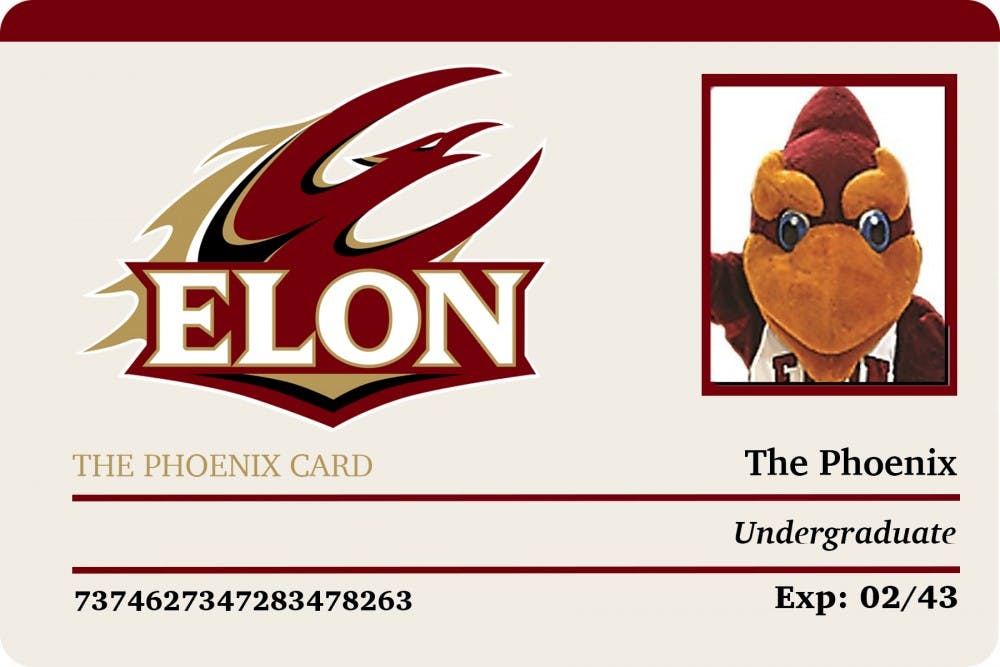North Carolinians voted this past November on a constitutional amendment that would require voters to show an identification card at the polls.
Students at Elon University would be able to use their university IDs, but only if it meets the state’s new requirements. Currently, the Phoenix Card does not meet these requirements set by the State Board of Elections.
The university would either have to update the Phoenix Card so it meets the standards set by the state or would have to provide a whole new ID. This card would have to have an updated photograph taken by the university, and will need to include an expiration date.
To make sure an Elon ID card can be used to vote, the university would need to confirm the identity of students applying for new IDs.
By March 13, President Connie Book will have to submit “a signed letter to the Executive Director of the State Board under penalty of perjury” that confirms the university has an ID card that meets the requirements, according to the ratified North Carolina Senate Bill 824.
But all of these requirements come with a cost. According to Chris Fulkerson, assistant vice president for administrative services, it would cost the university more than $40,000 to re-card all students, not including the $57,000 cost for new equipment to make these cards if Elon chose to update and redistribute the Phoenix Card.
With these costs in mind, the university administration is weighing their options, according to Bob Shea, associate vice president for business, finance and technology.
Fulkerson has requested the State Board of Elections allow the university to have two IDs, one of which can be used to vote. At the direction of President Book, university officials are coming up with an alternate card to the Phoenix Card.
Shea said the university is considering offering the card only to students who request it. Shea said the administration does not expect that every student would need an ID from the university to vote.
“20 percent of our students already come from North Carolina, and then many students that come from different states vote in their home state,” Shea said. “So, we would anticipate that, you know, not all 7,000 students would need this.”
While providing students with an ID that is compliant with the voter ID law is one option, the university may decide against it.
“The university has no obligation to provide it because we’re not a government agency,” said Jason Husser, director of Elon Poll and political science professor who specializes in North Carolina politics.
Since the state has to provide a free identification card to registered voters, Husser said the university would not be disenfranchising students’ right to vote by not providing a valid form of ID.
“The Alamance County Board of Elections is willing to work with Elon to register groups of students and take their pictures if the university can transport students to the election office in Graham,” Fulkerson said.
At the end of the day, the Elon administration wants students to vote.
“President Book and the administration believe that we should encourage everyone to vote and we should remove whatever obstacles there are to that,” Shea said.
The thought behind presenting an ID to vote is that it combats voter fraud, though voter fraud is a rare occurrence.
“As far as we know by every measure possible, it seems to be something that almost never happens. And so in that sense, voter ID is not necessarily stopping much fraud,” Husser said.
Research by the Heritage Foundation, a conservative think tank, found only six cases of voter fraud in North Carolina since the 2016 elections.
The voter ID law was vetoed by Gov. Roy Cooper, but this was overturned by the General Assembly. On Feb. 22, a Wake County judge voided the voter ID amendment, saying the amendment had been illegally established because a federal court had ruled that North Carolina’s districts were gerrymandered and must be redrawn. Legislators have filed a notice with the Court of Appeals that is in process.
While the amendment is in flux, the Elon administration is still working on a solution to provide students with an ID.
Fulkerson said “the legal process will extend the current timeline,” but the university has to make a decision by March 15.


